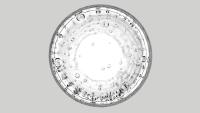Kathrin Schilling, MSc, PhD
- Assistant Professor at CUIMC of Environmental Health Sciences
On the web

Overview
Kathrin Schilling is an Assistant Professor of Environmental Health Sciences at Columbia University and Director of the Multi-Element Trace Analysis Laboratory (METALab). Her research focuses on advancing both metal measurements and isotope metallomics to uncover how essential and toxic elements influence human health. The overarching goal of Dr. Schilling’s work is to identify novel biomarkers and clarify mechanisms by which metals contribute to chronic disease, with applications in cancer, diabetes, and women’s health.
Since joining Columbia, Dr. Schilling has developed a distinctive research portfolio that integrates analytical chemistry, molecular biology, and population-based epidemiology. Her group develops and applies high-precision mass spectrometry methods to measure trace elements and their isotopes in biological and environmental samples.. A central theme of her research is the use of stable isotope fractionation and multi-element profiling as sensitive indicators of altered physiology. She pioneered studies applying zinc isotope patterns in urine as early markers of pancreatic cancer risk and is advancing broader isotope and elemental analyses to understand how arsenic, lead, cadmium, uranium, selenium, and other metals affect disease processes.
Dr. Schilling’s independent research spans multiple complementary areas:
- Development of next-generation methods for metallomics to achieve ultra-trace detection and isotopic resolution of metals in complex biological and environmental systems.
- Application of isotope metallomics as an early tool to identify metabolic disruptions and disease risk in cancer, diabetes, and women’s health.
- Integration of isotope and element analyses into large-scale epidemiological studies to define how environmental exposures shape chronic disease outcomes.
Her contributions have been recognized internationally, including the Royal Society of Chemistry’s Metallomics Young Investigator Award (2019) and the NIEHS P30 Career Development Award (2022). As Director of METALab, she has established a hub for cutting-edge trace element and isotope analysis, supporting interdisciplinary collaborations across biomedical, environmental, and global health research.
Office Location: 630 West 168th Street, VP&S Room 16-413
Academic Appointments
- Assistant Professor at CUIMC of Environmental Health Sciences
Administrative Titles
- Associate Member of the Columbia Center for Environmental Health and Justice in Northern Manhattan
Credentials & Experience
Education & Training
- MSc, 2008 Leipzig University
- PhD, 2011 Johannes Gutenberg University of Mainz
Honors & Awards
2019 Metallomics Young Investigator's Award; The Royal Society of Chemistry
2021 AGU Community Science Fellowship; Thriving Earth Exchange Program
2022 Career Development Award; NIEHS P30 Center for Environmental Health and Justice in Northern Manhattan
Research
Research Interests
- Chronic disease
- Environmental Health
Selected Publications
Schilling, K., Johnson, T.M., Dhillon, K.S., Mason, P.R.D. (2015). Fate of selenium in soils at a seleniferous site recorded by high precision Se isotope measurements. Environmental Science and Technology 49: 9690–9698.
Schilling, K., Moore E.T., Sullivan K.V., Capper M.S., Rehkämper M. Goddard K., Ion C., Coombes C., F., Vesty-Edwards, L., Lamb, A.D., Halliday, A. Larner F. (2021). Zinc stable isotopes in urine as diagnostic for cancer of secretory organs Metallomics 13(5)
Schilling, K., Larner, F., Kocher, H.M., Blyuss, O., Halliday, A.N., Crnogorac-Jurevic (2020). Urine metallomics signature in pancreatic cancer. Metallomics 12: 752-757.




